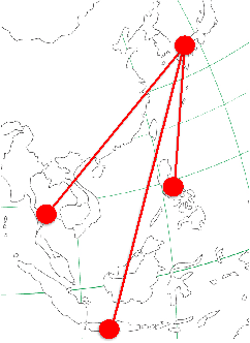Human Development (society, education, and health) Project

Project Leader
Prof. Yohichi Kurozawa, Faculty of Medicine
Project Organization
Climate Change and Human Health Group
Leader: Assoc Prof. Shinji Otani, International Platform for Dryland Research and Education
“Research and education on health effect of climate change”
Infection Control and Prevention Group
Leader: Prof. Seiji Kageyama, Faculty of Medicine
“Research and education for control and prevention of infectious diseases originated from developing countries vulnerable to climate change”
Education for Human Development Group
Leader: Assoc Prof. Nobuyuki Kobayashi, ALRC
“Proposal of the development project, including the improvement of health and/or primary education, in developing countries, especially in dry area”
Project Overview
“To contribute to the society, education and medical improvements in drylands by developing the arid land science.”
i) Climate Change and Human Health Group
The goal of this group is to evaluate the negative impacts of climate change on human, livestock animals and social life and suggest countermeasures to these impacts. Our current focus is on the rapidly increasing episodes of heat strokes due to the aggravation of the hot environment. We are trying to clarify the causes and the risk mitigation methods. We are also conducting research on extreme weather events such as drought, excessive rain and snow, and extreme low temperature.
ii) Infection Control and Prevention Group
Nowadays infectious diseases of Southeastern Asia origin are impacting the whole entire Asia due to climate change and relaxed travel visa requirements. In partnership with Phillipino, Thai and Indonesian teams we are working on epidemiological control through pathogen analysis and vaccine development.
iii) Education of Human Development Group
Diabetes is the leading cause of death in the Philippines. This group works with selected communities to support their actions to reduce the risk of diabetes by increasing people’s awareness of their lifestyles. These efforts enable us to compare the illness prevention measures taken in Japan and developing countries.
**In addition to the development of surgical robots, we will attempt to develop PM2.5 biological influence degree measuring devices, anti-insect cooling vests for hot arid areas, medical equipment specially made for developing countries such as telesurgery systems as new projects.

Health exam in Mongolia.

Area of Joint Research.
